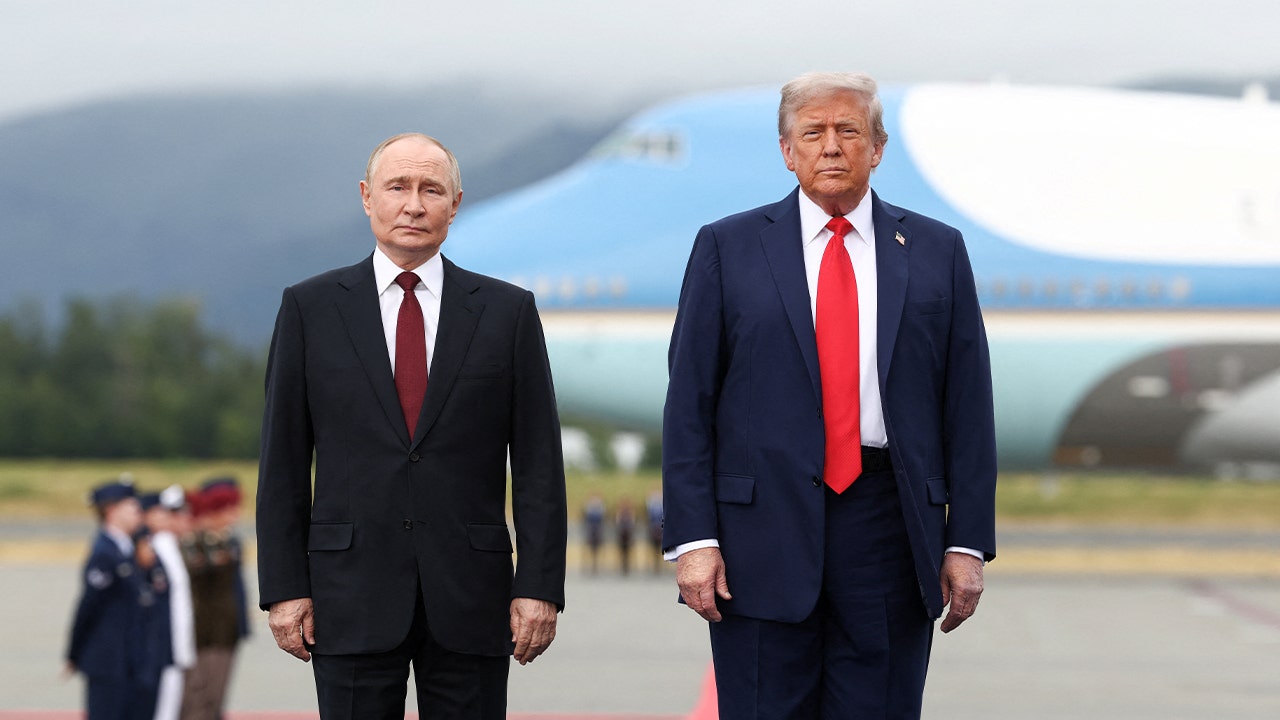
Putin’s wins leave Trump with hard choices
Entities mentioned:
- Vladimir Putin: Power, Control, Influence
- Donald Trump: Recognition, Legacy, Ambition
- Ukraine: Self-preservation, Freedom, Security
- Russia: Power, Control, Influence
- Volodymyr Zelensky: Duty, Self-preservation, Unity
- European leaders: Security, Unity, Wariness
Article Assessment:
Credibility Score: 75/100
Bias Rating: 40/100 (Lean Left)
Sentiment Score: 35/100
Authoritarianism Risk: 45/100 (Mixed/Neutral)
Bias Analysis:
The article leans slightly left, evident in its critical tone towards Trump's actions and motivations. However, it attempts to provide balanced reporting by including multiple perspectives and acknowledging some positive aspects of Trump's diplomacy efforts.
Key metric: US Global Leadership Index
As a social scientist, I analyze that this article highlights a significant shift in US foreign policy approach towards the Russia-Ukraine conflict. Trump's meeting with Putin in Alaska appears to have yielded more benefits for Russia than for the US or Ukraine. The article suggests that Trump's desire for a quick, high-profile diplomatic win may have led him to make concessions without securing tangible gains. This approach could potentially weaken the US position in global affairs and its ability to influence outcomes in major international conflicts. The article also raises concerns about Trump's susceptibility to flattery from authoritarian leaders, which could impact US strategic interests and relationships with allies. The potential implications for Ukraine's security and territorial integrity are significant, as are the possible effects on US credibility among its NATO allies and other partners.
- Read more about Putin’s wins leave Trump with hard choices
- Log in to post comments

MORNING GLORY: Can President Trump deliver a ceasefire or even a peace agreement between Russia and Ukraine?
Entities mentioned:
- Donald Trump: Power, Influence, Legacy
- Vladimir Putin: Power, Control, Influence
- Volodymyr Zelenskyy: Duty, Self-preservation, Unity
- Donald Rumsfeld: Professional pride, Influence, Security
- Hugh Hewitt: Influence, Professional pride, Curiosity
- Media: Recognition, Influence, Greed
Article Assessment:
Credibility Score: 70/100
Bias Rating: 65/100 (Lean Right)
Sentiment Score: 55/100
Authoritarianism Risk: 35/100 (Generally Democratic)
Bias Analysis:
The article leans right due to its favorable portrayal of Trump's diplomatic efforts and criticism of media reporting. However, it maintains some balance by emphasizing the uncertainty of outcomes and citing examples of successful diplomacy.
Key metric: Diplomatic Influence
As a social scientist, I analyze that this article primarily focuses on the uncertainty surrounding diplomatic negotiations between the US, Russia, and Ukraine. The author, Hugh Hewitt, emphasizes the importance of acknowledging the limits of public knowledge in high-stakes diplomacy. He criticizes media sources claiming inside knowledge of these meetings, suggesting that such claims are either misinformation or clickbait. The article indirectly highlights the potential for US diplomatic influence, particularly through Trump's involvement, but cautions against premature conclusions. This measured approach to assessing diplomatic progress could impact the US's perceived diplomatic influence on the global stage, especially in conflict resolution efforts.